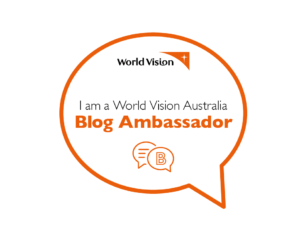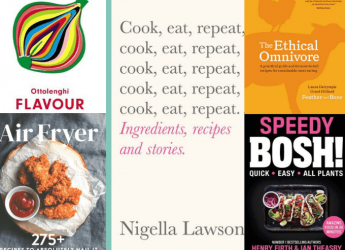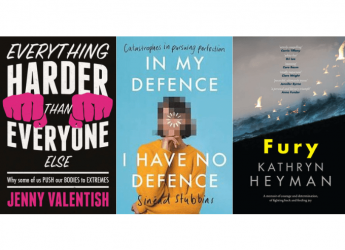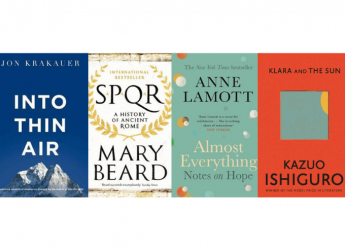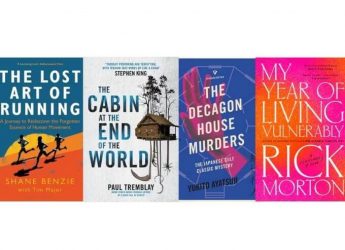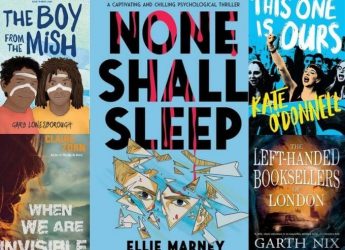‘Voice.’
What is it?
It’s a common question, one that’s asked a lot when it comes to blogging. With good reason too: one of the first indicators that a blogger is on the right path comes with their sensing, or they’ve been told, that their voice is developing, or even established. They’re making their individual mark.
So, to answer the above question, ‘voice’ is what distinguishes one blog – one blogger – from another. It comes down to the ability – as I’ve said before – of knowing not only what you want to say but how you want to say it. That incorporates such things as tone, style, language, structure and more.
But here’s where things get a little complicated. Because, at times, regularly or not, an emotion creeps in that threatens to undermine your voice. This emotion is self-doubt, and I’ve occasionally mistaken the two, even though they’re not quite the same. When I’m feeling in a funk (I’m in one right now, hence my attempt to write my way out of it), I’ve taught myself a few tips to claw my way back out of it and into a clearer state of mind. Once I’m feeling better, the anxieties decrease, the self-doubt fade, and my voice comes back to the fore.
Here are some suggestions for if you ever feel the same way.
Ask yourself what it is you’re really trying to achieve in your blog post/story/essay/poem etc.
One of the reasons I get in the occasional tizz is due to the fact I’m writing in several forms at the same time for different projects. It’s not the ideal scenario perhaps (1,000 words on a novel, a 400 word blog post, a poem, the skeleton of a plot for a short story, for example) and I’m not great at blocking out brain space if I’ve got other stuff on the go. What does help is when I’m in a torment and have my head in my hands I ask myself “What am I REALLY trying to do here?”
If I’m writing a blog post just for the sake of it and I’ve lost the idea I sat down with in the first place, I save the draft. If I’m writing a novel, I go back to my scene cards (yes, I still use them old-school wise) and look at the character(s) until I remember my original purpose.
Being real cuts through bullshit (“Am I writing this blog post simply because I ‘need’ to get something out because it’s been a few days and people will forget me if I don’t, right?”) and saves time.
Write about a passion topic, even if it’s completely unrelated to what you’re current project…
The ‘miscellany’ in my blog title is apt – I an interested in boatloads of things (boats included). I cover a lot on this blog – when I teach, I use this blog as an example of what a blog looks like when it chooses not to be too niche (for good or bad) – but if I covered everything I wanted, it would be twice as wide.
So if I’m stuck on one thing, and my voice isn’t clear or coming through, I have been known to abandon it to write 500 words – straight off the cuff, stream of consciousness-way – on a subject I adore. Old Hollywood costume design, for example. I blogged about it here once upon a time, but wrote more offline once I saw the Hollywood Costume exhibition, which I then used as a jumping off point for the piece that ended up on The Hoopla. Sometimes these things just fall out of you and find a home you might not have initially imagined. The clicky-clack of fast typing fingers can do wonders.
(… and if you’re really suffering, watch something about this topic as well).
I watched a 90 minute documentary on Jaws this week. It’s one of my favourite movies, every time I see it I get something new out of it (and I only saw it for the first time when I was in my 30s). The script, the acting, its simplicity of plot and primal theme are all well executed. It was fascinating to see just what a mess of a production it was, how close they came to not finishing it at all. My spirit is bolstered when I hear such tales that then go on to a happy, successful end. It’s a reminder that writing – creating – isn’t easy.
Listen to kids chatter to one another.
If you’re a parent, or have been around a lot of kids in your life, you will know that their straightforwardness, their honesty, and purity of perspective can be very cleansing. If you ask them a question, they’ll give you an answer, often unadorned with nicety or flattery. Their voices, the way they speak to one another, can be a joy to listen to.
If you’re writing non-fiction, turn it into fiction.
Say that there’s something bothering you about your family, or your past, or your job and you want to write about it but can’t for sensitive or squeamish reasons. Some writers are better at getting over that than others. If what you want to say makes you fearful and that in turn has an impact on your voice (what you’re saying/how you say it) then maybe you could change some details around and make up a story. Even if you’re not a fiction writer, you might be surprised at what a freeing exercise can be; that first draft can expel a lot of anger or the emotional muck that held you back in the first place. It doesn’t need to be long.
Do you have any suggestions? What do you do if your voice is feeling a wobbly or muted? I’d love to hear.
Photo credit: cogdog




